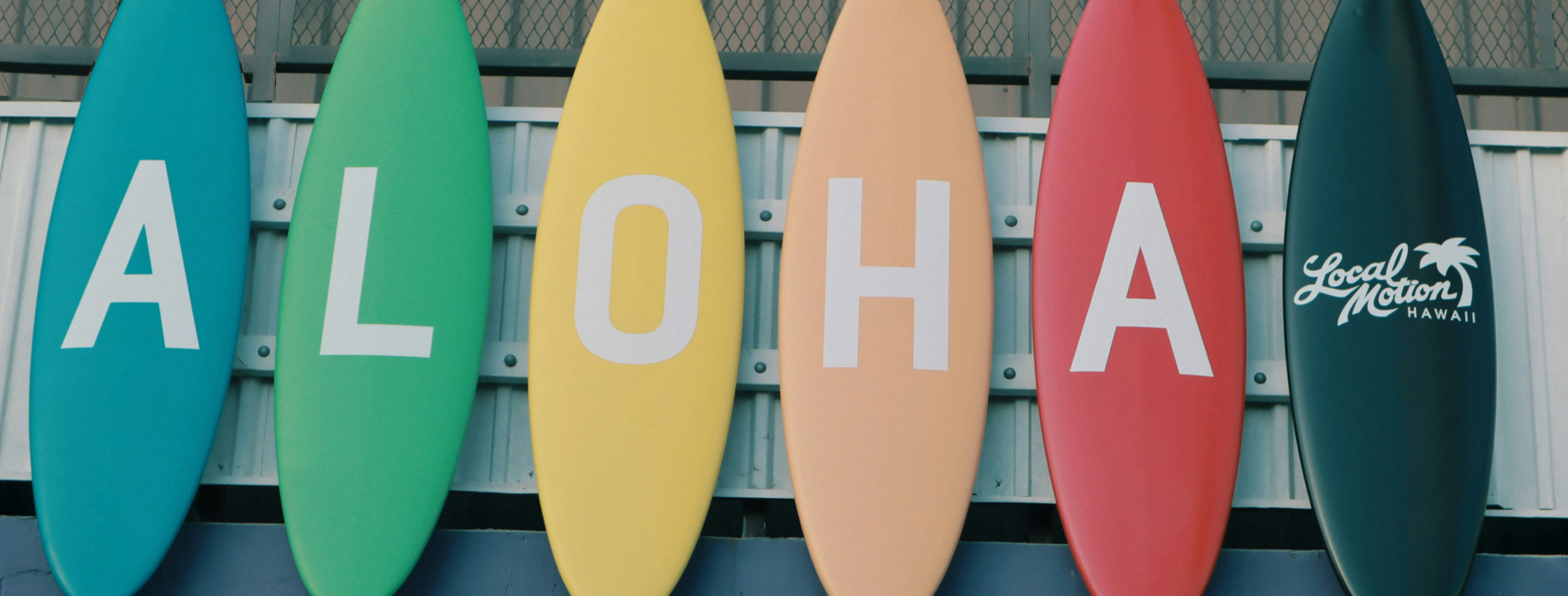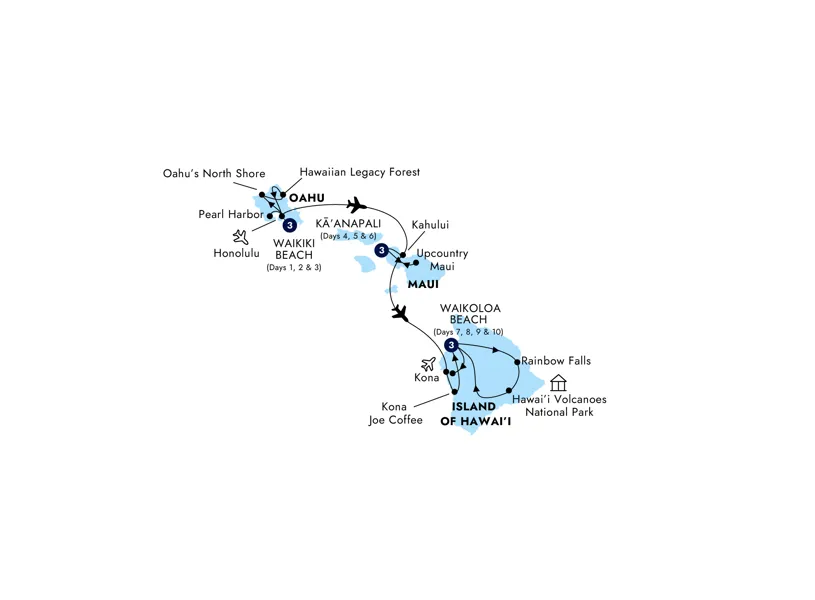Embrace a tropical state of mind with the best Hawaii has to offer.
20+ Hawaiian Slang
Words and Meanings
Words and Meanings
Essential Hawaii Pidgin Guide for Travel

Hawaii is more than just breathtaking beaches and stunning landscapes, it has a rich culture and unique language that makes it truly special. One of the most distinctive aspects of Hawaiian communication is Hawaii Pidgin, a Creole language developed through the blending of Hawaiian, English, and various immigrant languages. While Pidgin is widely spoken among locals, there are also many Hawaiian slang words and phrases you should know before you visit the islands.
How to Pronounce Hawaiian Words
Hawaiian words are typically pronounced syllabically, meaning each vowel is enunciated. Here are a few pronunciation tips to help you:
Vowels:
- A = “ah” as in “father”
- E = “eh” as in “bet”
- I = “ee” as in “see”
- O = “oh” as in “go”
- U = “oo” as in “moon”
Glottal Stop (‘okina): This is a slight pause, like the break in “uh-oh"
Macron (kahakō): A line over a vowel indicating it should be elongated.
20+ Popular Hawaiian Slang Words Used by Locals
When visiting Hawaii, learning a few common slang words can help you better connect with the local culture. Here are some must-know words and their meanings:
| Word / Phrase | Meaning | In Use |
|---|---|---|
| Aloha Ah-loh-ha |
Can mean hello, goodbye, love, or compassion, depending on the context. | “Aloha! Welcome to Hawaii.” |
| Da Kine Dah-kine |
A versatile phrase meaning “whatchamacallit” or “thingamajig.” | “Can you pass me da kine?” |
| Hana Hou Hah-nah hoe |
“One more time” or “Encore!” | “That song was amazing! Hana hou!” |
| Ho Brah! Ho brah! |
Expression of excitement or disbelief, like “Wow, dude!” | “Ho brah! That wave was huge!” |
| Howzit? How-zit |
A casual way of saying “How are you?” | “Howzit, my friend?” |
| Kama‘aina Ka-ma-aye-na |
A local resident of Hawaii, regardless of ethnicity. | “He’s a kama‘aina, born and raised here.” |
| Kāne Kah-neh |
Hawaiian word for “man” or “male.” | “That kāne is a great surfer.” |
| Keiki Kay-kee |
Hawaiian word for “child” or “children.” | “The keiki are playing on the beach.” |
| Lei Lay |
Garland of flowers, shells, or nuts given as a sign of affection or welcome. | “She received a beautiful flower lei.” |
| Lū‘au Loo-au |
Traditional Hawaiian feast with food, music, and hula. | “We’re going to a lū‘au tonight!” |
| Mahalo Ma-ha-low |
Thank you. | “Mahalo for your kindness.” |
| Menehune Men-eh-hoo-neh |
Mythical small people known for craftsmanship. | “The menehune built this ancient fishpond.” |
| ‘Ono Oh-no |
Delicious (usually describing food). | “This poke is so ‘ono!” |
| ‘Ohana Oh-ha-na |
Family, including extended or close friends. | “‘Ohana means family, and family means no one gets left behind.” |
| Pau Pow |
Finished or done. | “Are you pau with work?” |
| Puka Poo-ka |
Hole or opening. | “That shell has a nice puka for a necklace.” |
| Shaka Sha-kah |
Hand gesture symbolizing “hang loose” or “good vibes.” | “Give a shaka for the camera!” |
| Tūtū Too-too |
Grandmother or grandfather (term of endearment). | “Tūtū made us some fresh bread.” |
| Wahine Wah-hee-neh |
Hawaiian word for “woman” or “female.” | “That wahine is an amazing dancer.” |
Why You Should Learn Hawaiian Slang Before Visiting
Learning Hawaiian slang and Pidgin words before your trip can help you engage with locals and appreciate the island culture even more. Whether you’re ordering some ‘ono kau kau or throwing a shaka, understanding these phrases will enrich your experience in paradise.
So, next time you visit Hawaii, give a heartfelt "Aloha!" and immerse yourself in the beauty of both the islands and their language.
Hawaii Pidgin is a Creole language that developed in Hawaii as a blend of Hawaiian, English, Portuguese, Chinese, Japanese, and Filipino influences. It is widely spoken among locals and is an important part of Hawaii’s culture.
It’s not necessary, but learning a few Hawaiian slang words and phrases can enhance your experience and help you connect with locals.
Aloha can mean hello, goodbye, love, or compassion, depending on the context. It embodies the spirit of Hawaii and its culture of kindness and respect.
While visitors can use common Hawaiian slang words, attempting to speak full Pidgin may come across as inauthentic, as it's not a common practice. Stick to simple phrases and listen to how locals speak.
Mahalo means "thank you." You’ll often see it on signs and hear it used frequently in Hawaii.
"Slippahs" is a local term for flip-flops or sandals, which are the preferred footwear in Hawaii’s warm climate.
Wearing socks with slippahs (flip-flops) is a common style in Hawaii, often for comfort, warmth on cooler nights, or simply personal preference.
Kama‘aina refers to a local resident of Hawaii, regardless of ethnicity. Some businesses offer "Kama‘aina discounts" to residents.














